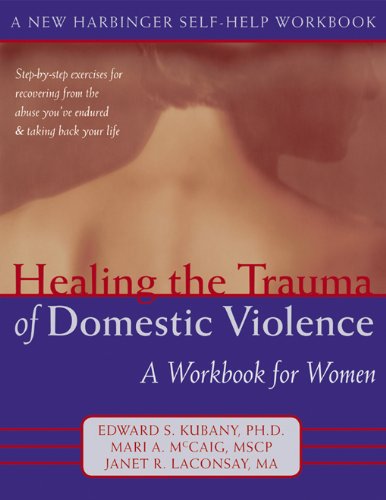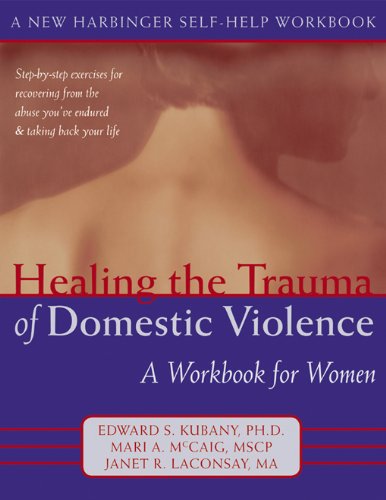
Many women who free themselves from violent domestic situations experience symptoms of post-traumatic stress disorder (PTSD) long after they achieve physical and emotional safety. A ringing telephone or a crowded city street threatens a potential encounter with their abuser. People they care for seem far away, and things they used to enjoy offer neither pleasure nor relief. Their long, sleepless nights drag on.
If you’ve freed yourself from an abusive relationship but still suffer from its effects, this program of trauma recovery techniques can help you take back your peace of mind. Based on a clinically proven set of techniques called cognitive trauma therapy (CTT), the exercises in this workbook will help you address feelings of guilt, anger, depression, anxiety, and stress. You’ll learn how to break down the negative thoughts that might be cycling in your mind and how to replace them with positive, constructive affirmations. Later in the program, you’ll be guided through controlled exposure to abuse reminders, which will enable you to face the fears you might otherwise spend a lifetime avoiding. The program begins and ends with techniques for becoming your own best advocate—an informed, confident person with all the strength you need to create the secure, fulfilling life you deserve.
- Recognize the effects of trauma on your life
- Let go of anger, stress, shame, and guilt
- Change core beliefs that can lead to involvement in abusive relationships
- Confront and overcome your fears
- Dispel feelings of helplessness
- Avoid future involvement with potential abusers

